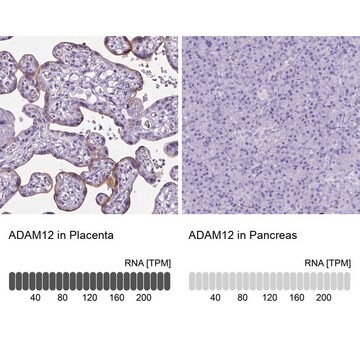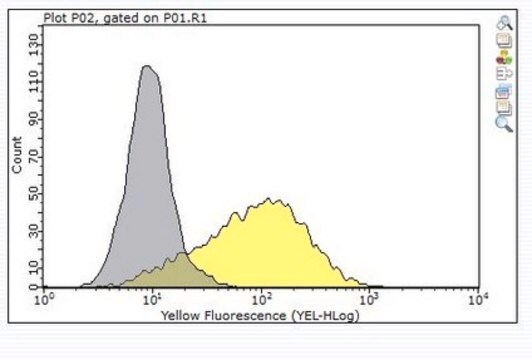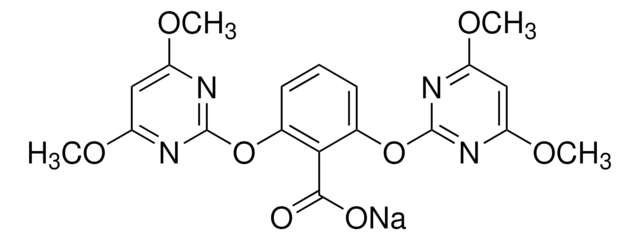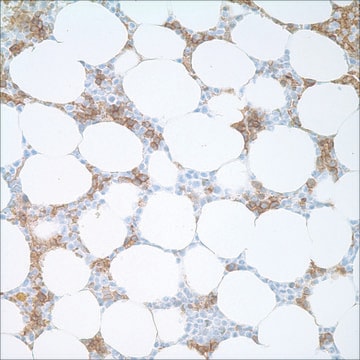MABT1331
Anti-ADAM 12 Antibody, clone 6E6
clone 6E6, from mouse
Synonyme(s) :
Disintegrin and metalloproteinase domain-containing protein 12, Meltrin-alpha
About This Item
Produits recommandés
Source biologique
mouse
Forme d'anticorps
purified immunoglobulin
Type de produit anticorps
primary antibodies
Clone
6E6, monoclonal
Espèces réactives
human
Conditionnement
antibody small pack of 25 μg
Technique(s)
flow cytometry: suitable
immunocytochemistry: suitable
immunoprecipitation (IP): suitable
western blot: suitable
Isotype
IgG1κ
Numéro d'accès NCBI
Numéro d'accès UniProt
Modification post-traductionnelle de la cible
unmodified
Informations sur le gène
human ... ADAM12(8038)
Description générale
Spécificité
Immunogène
Application
Western Blotting Analysis: A representative lot detected ADAM 12 in Western Blotting applications.
Immunoprecipitation Analysis: A representative lot immunoprecipitated ADAM 12 in Immunoprecipitation applications.
Immunocytochemistry Analysis: A representative lot detected ADAM 12 in Immunocytochemistry applications.
Flow Cytometry Analysis: A representative lot detected ADAM 12 in Flow cytometry applications.
Apoptosis & Cancer
Qualité
Immunocytochemistry Analysis: A 1:250 dilution of this antibody detected ADAM 12-DeltaCyt in MCF-7 cells.
Description de la cible
Forme physique
Stockage et stabilité
Autres remarques
Clause de non-responsabilité
Vous ne trouvez pas le bon produit ?
Essayez notre Outil de sélection de produits.
Certificats d'analyse (COA)
Recherchez un Certificats d'analyse (COA) en saisissant le numéro de lot du produit. Les numéros de lot figurent sur l'étiquette du produit après les mots "Lot" ou "Batch".
Déjà en possession de ce produit ?
Retrouvez la documentation relative aux produits que vous avez récemment achetés dans la Bibliothèque de documents.
Notre équipe de scientifiques dispose d'une expérience dans tous les secteurs de la recherche, notamment en sciences de la vie, science des matériaux, synthèse chimique, chromatographie, analyse et dans de nombreux autres domaines..
Contacter notre Service technique








